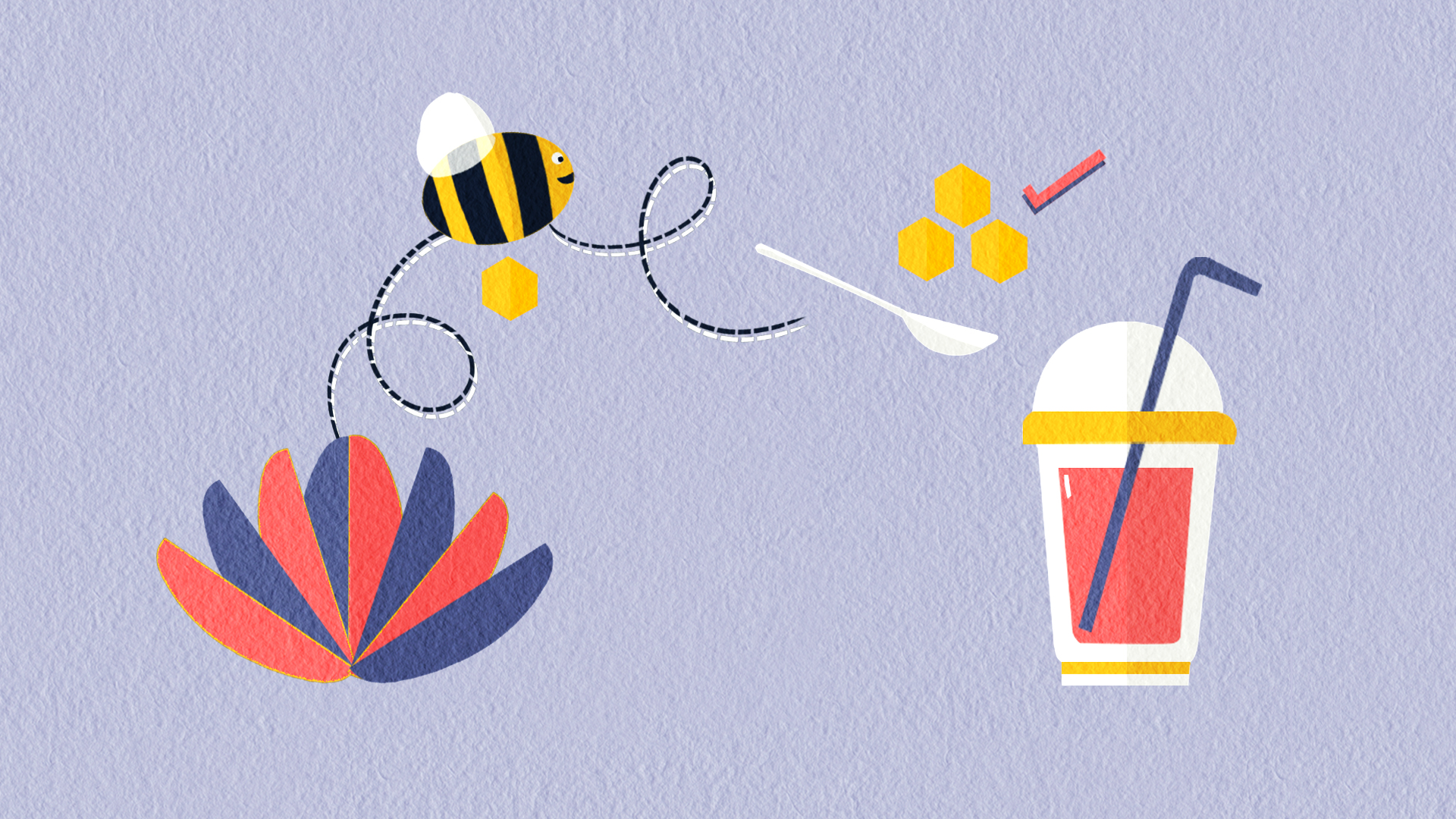Regarded as one of the world's most complete food, bee pollen contains nearly all the nutrients you need, from essential amino acids and fatty acids to vitamins and potent antioxidants.
Able to help your body to adapt to physical and emotional stress, this superfood improves the immune system and energy levels and can boost fat metabolism.
Our selected bee pollen recipes are so delicious and quick to make that it'll be so easy for you to add this natural supplement to your daily diet.
Before we dip into these recipes, let's first talk about the surprising and interesting benefits of bee pollen.
What is Bee Pollen and How is it made
Bee pollen is one of the beehive products like honey, beeswax, royal jelly, and propolis. These bright yellow little pellets contain a mix of flower pollen and bee secretions.
Made by worker honey bees when they land on flowers to gather their nectar, bee pollen is transported back to the hive where is packed into honeycomb cells and, after being covered with honey and bee wax, provides nourishment for the whole colony.
Bee Pollen Nutrition
Bee pollen has over 200 substances which account for its incredible health benefits.
Although its nutritional profile may depend on environmental and harvesting factors, this superfood contains both macronutrients (carbs, fats, and proteins) and micronutrients (vitamin and minerals).
In addition, it's rich in enzymes, co-enzymes, and special plant chemicals, called phytochemicals, which bear health-promoting properties.
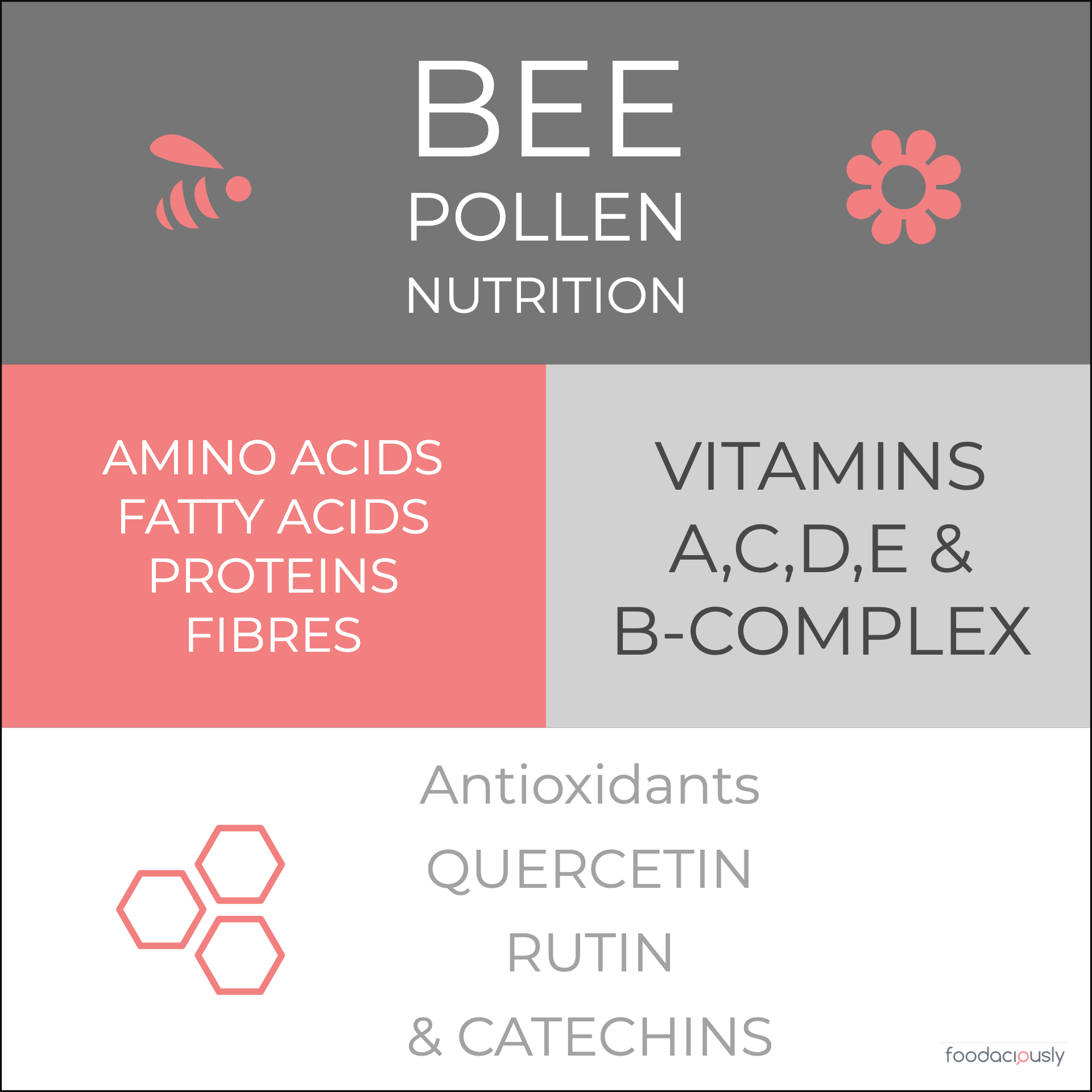
Essential Amino Acids and Fatty Acids
Bee pollen is so nutritious that it can easily provide you with all the required daily amino acids and fatty acids, specific nutrients that we need to introduce by diet as our body cannot independently produce them.
Amino acids are important for building muscle, regulating immune functions, and producing energy.
Essential fatty acids like omega-3 (linolenic acid) and omega-6 (linoleic acid) are healthy unsaturated fatty acids which reduce inflammation and lower cholesterol.
Vitamins & Antioxidants
Bee pollen provides an array of both fat-soluble and water-soluble vitamins and antioxidant phytochemicals.
In particular, it contains provitamin A (carotene), vitamins E (tocopherol), vitamin D, vitamin C, most of the B group vitamins, and plant compounds like quercetin, catechins, and rutin.
Bee pollen nutrients work in synergy to boost the immune system and metabolism, improve eye and skin health, lower cholesterol, fight infections, and regulate your mood.
Moreover, they have powerful antioxidant properties, fighting free radicals and preventing diseases.
Why Eat Bee Pollen
Gives Nutrition and Energy Boost
Thanks to its high protein content, healthy fats, carbs, and fibres, bee pollen has a high nutritional value.
Being loaded with vitamins, minerals, and enzymes which enhance the absorption of nutrients, their metabolism, and utilisation, bee pollen is an excellent dietary supplement to improve your energy levels.
Moreover, its powerful antioxidants protect your whole body from free radicals damage, decreasing the risk of cardiovascular diseases and cancer.
Therefore, this amazing beehive product can be your best ally to boost fitness, physical strength, mood, longevity, and overall vitality.
It's an Adaptogen
Bee pollen is also regarded as an adaptogen, meaning it can increase your resistance to stress caused by physical, chemicals and emotional factors.
In fact, it improves your brain functions such as memory and ability to concentrate so that you're better at dealing with stress.
With its antibacterial, anti-fungal, and antimicrobial properties bee pollen also enhances your immune system to help you fight against infections.
It's Anti‐inflammatory
The amazing plant compounds found in bee pollen, like flavonoids and phytosterols, can reduce the production of inflammatory chemicals.
Therefore, this natural supplement can help to fight inflammation with an efficacy that can compare with major anti-inflammatory drugs.
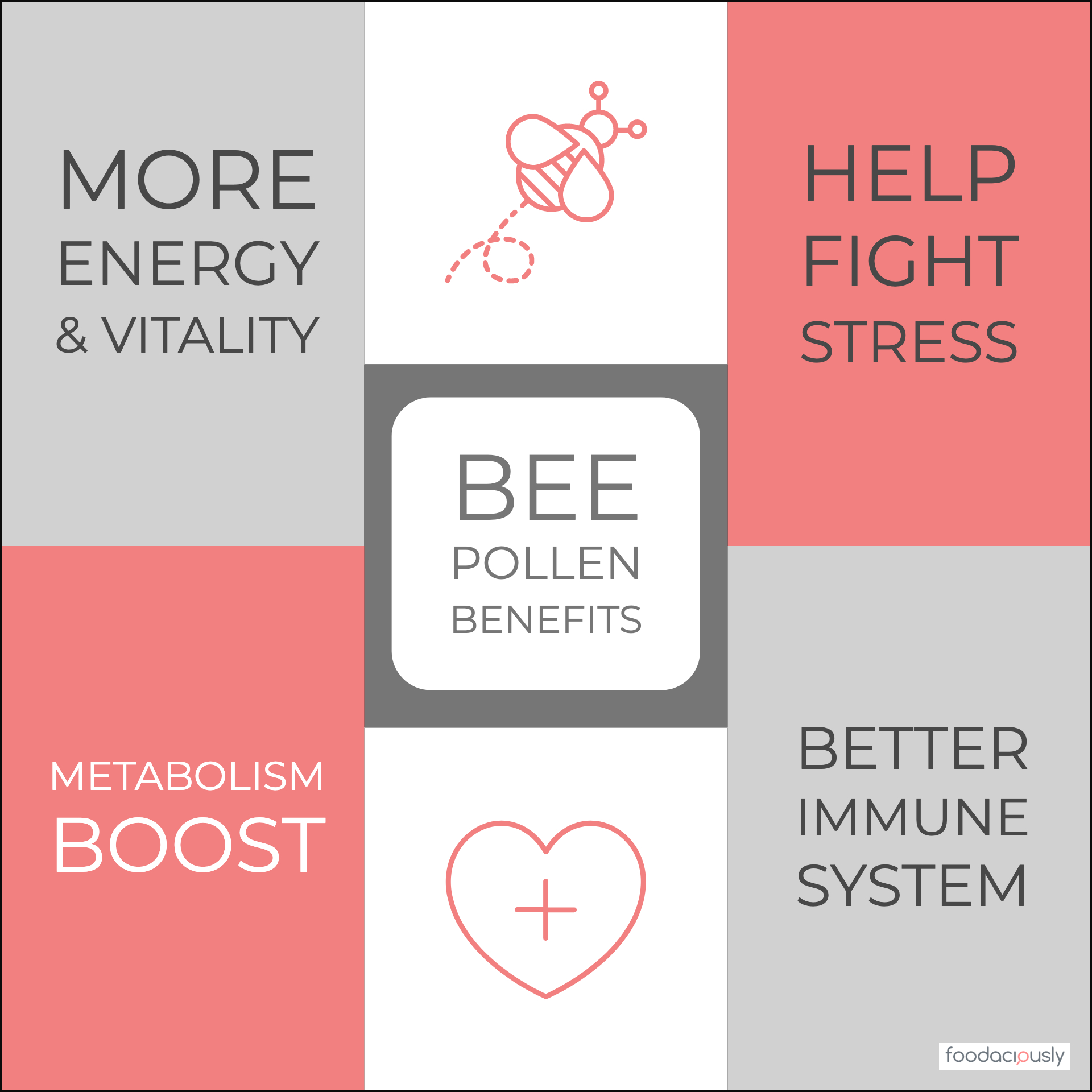
Lowers Lipids
The combination of B vitamins, antioxidants, and unique plant chemicals like phytosterols found in bee pollen can boost metabolism, in particular that of lipids.
In fact, these nutrients affect those lipids which are closely associated with the activity of insulin and thyroid hormones which play a major role in how our body handles fats.
This way, bee pollen helps to lower cholesterol levels in your blood preventing cardiac diseases and strokes.
How to Eat Bee Pollen
Ok, science class is over! We hope you found the article so far interesting and instructive. Let's now dive into food!
Bee pollen has a delicious floral taste that resembles that of honey, but slightly bitter. It is perfect for breakfast, sweet treats, and desserts recipes.
For example, you can use bee pollen:
Blended into smoothies.
Mixed with yogurt.
As topping over oatmeal, cereals, and toasts.
To garnish cheesecakes, cupcakes, and muffins.
In raw protein bars and granola.
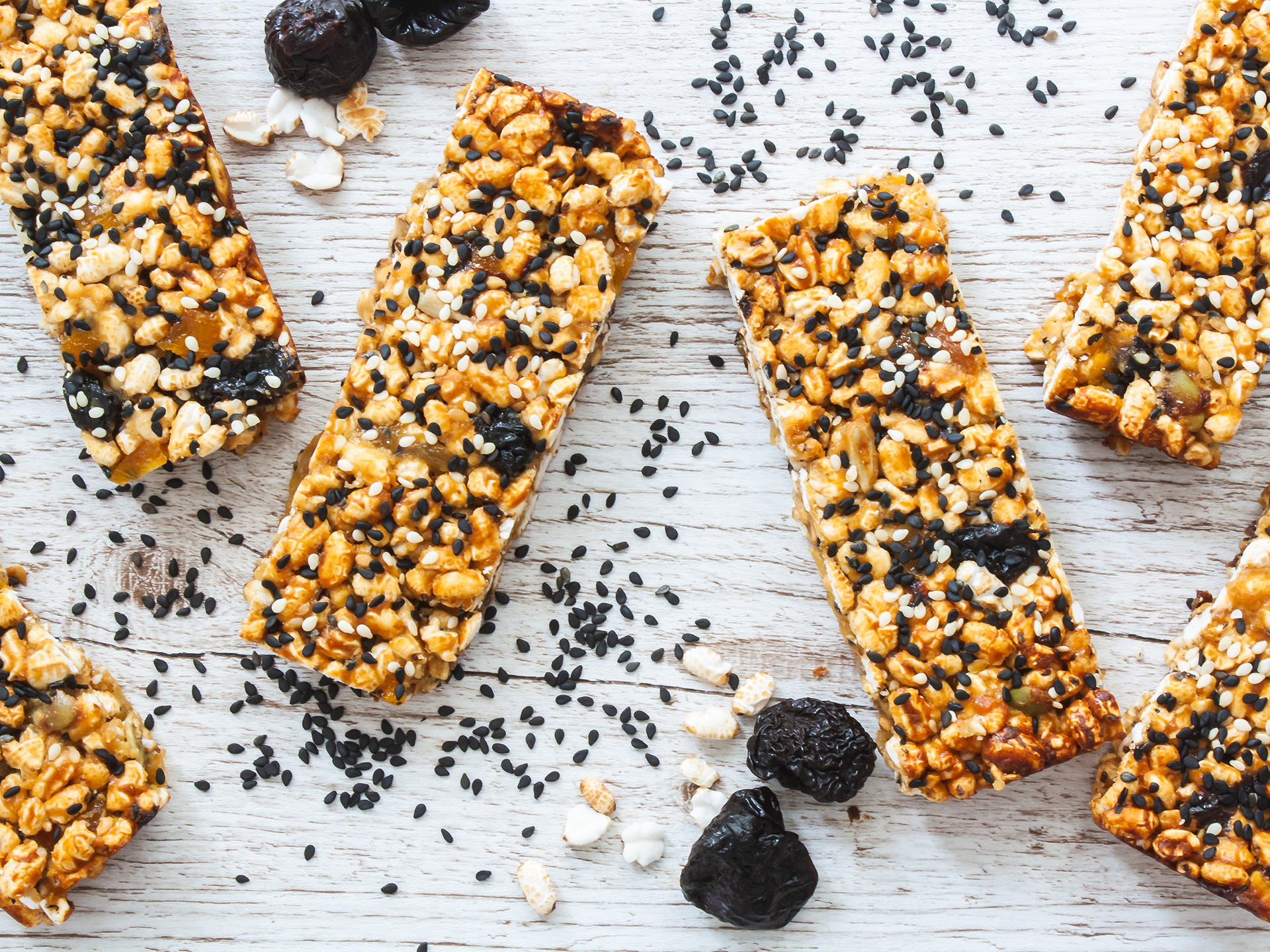
You can even use it to prepare savoury recipes like salads and salad dressing with herbs and spices.
To avoid contaminants and loss of nutrients, make sure you purchase high quality raw organic bee pollen and that you store it in an airtight container away from heat. You won't only get the most out this superfood but it will also last for years in your pantry.
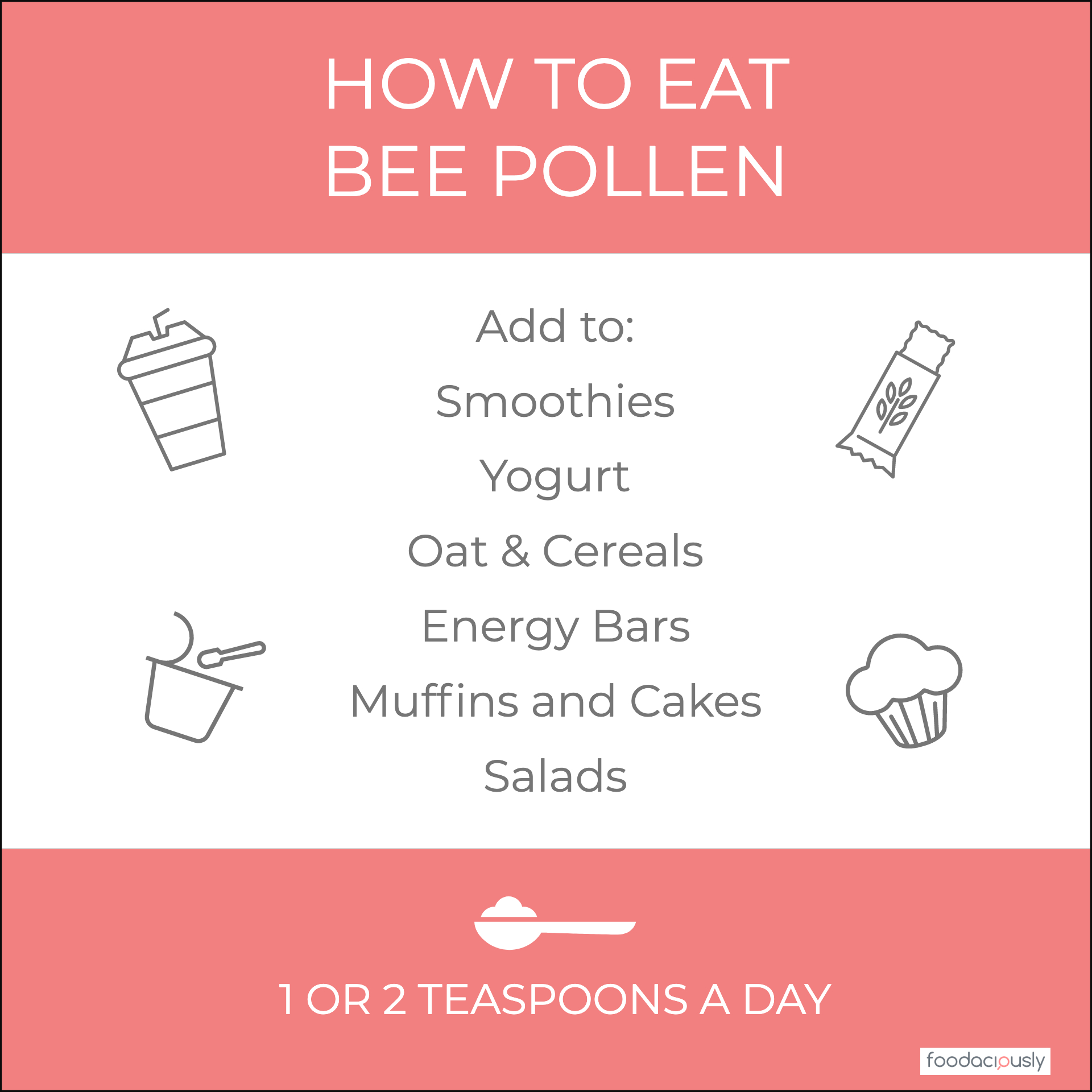
Also, for better nutrients absorption, we recommend using it raw in your recipes, as heat can destroy some vitamins and enzymes. Moreover, if you let the bee pollen grains soak in liquids, like yogurt or juices, they will crack and release more nutrients.
How Much Bee Pollen?
When it comes to how much bee pollen you should eat, really it's up to you, it's so nutritious that the more the better.
As guidance, we suggest 1 teaspoon of bee pollen pellets per day, increased to 2 teaspoons in periods between winter and spring and between summer and autumn.
5 Easy Bee Pollen Recipes
Mango and Chocolate Protein Smoothie
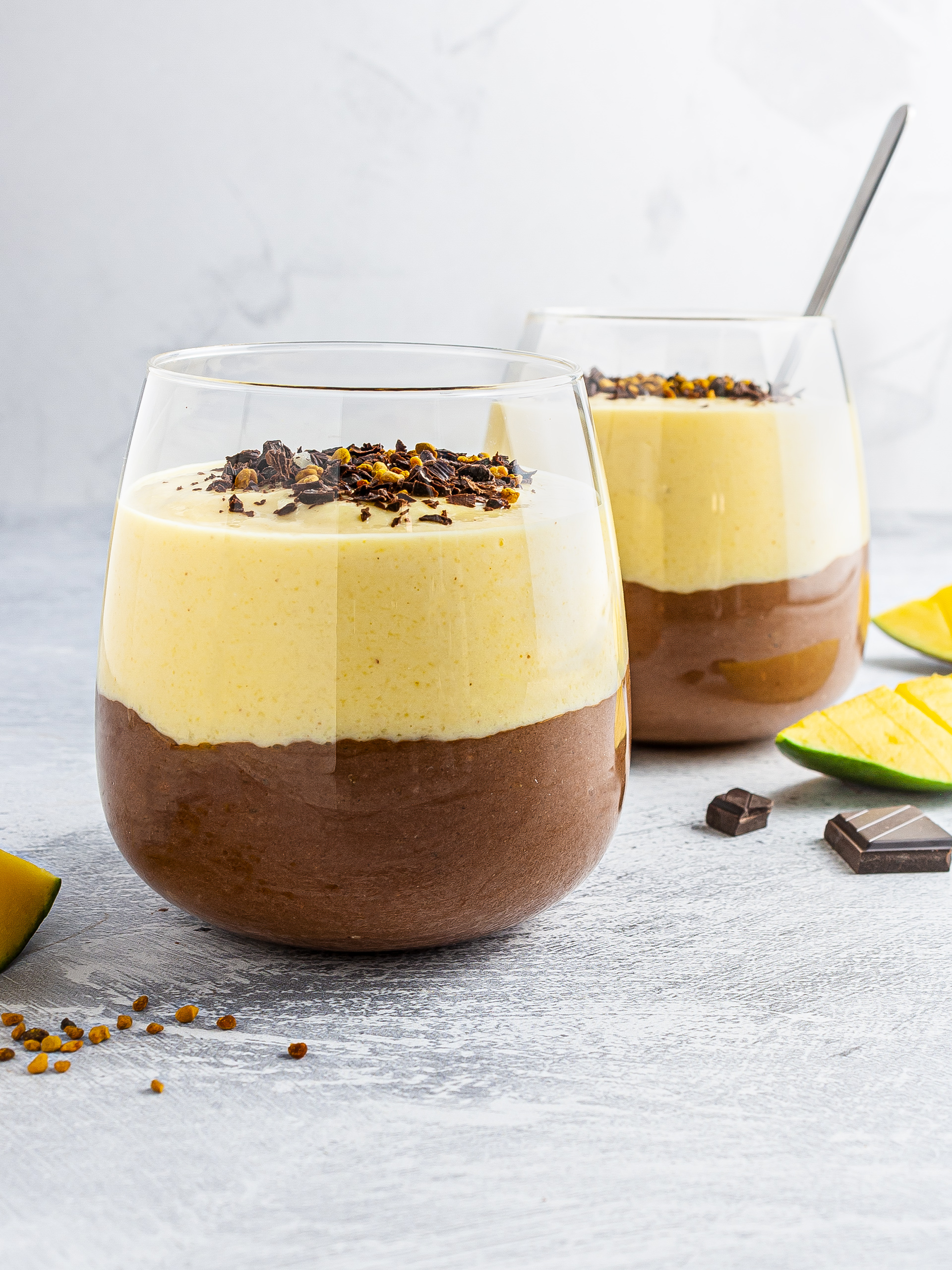
Perfect to enjoy after a workout session, this smoothie provides 50% of your recommended daily protein intake thanks to yogurt, almond butter, and chia seeds. Moreover, cacao helps in the healing process of muscle and tissues.
Bee pollen makes a great addition to this recipe as it improves your metabolism, provides energy, and reduces inflammation, helping you to recover faster from your workout.
Immune-Boosting Goji Smoothie
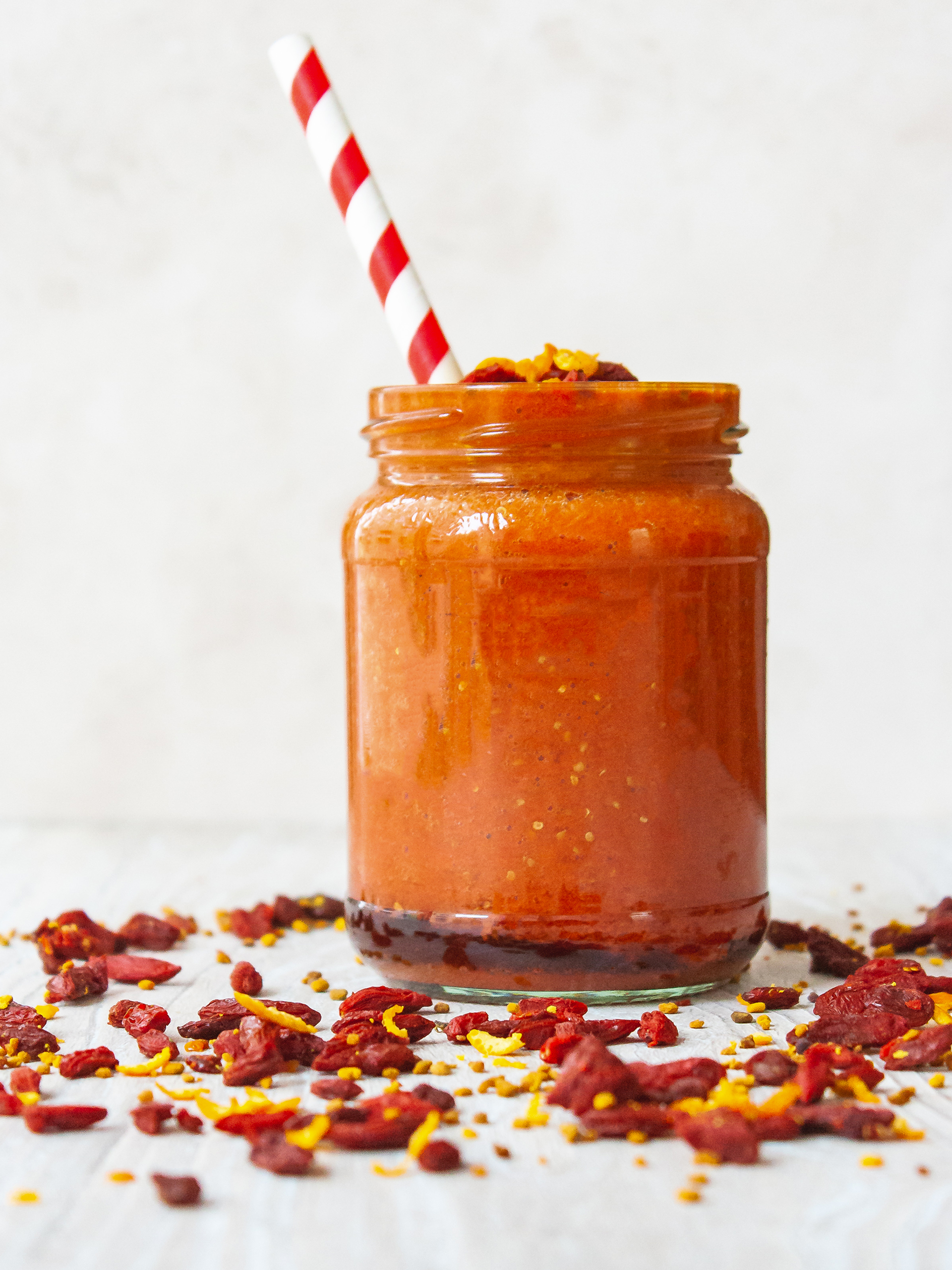
The combination of vitamin-rich fruits like Goji berry and orange will make you feel better and stronger when you are under a cold and feel sluggish.
With its adaptogenic properties, bee pollen will help you combat inflammation and stress in the body.
Melon and Banana Summer Smoothie
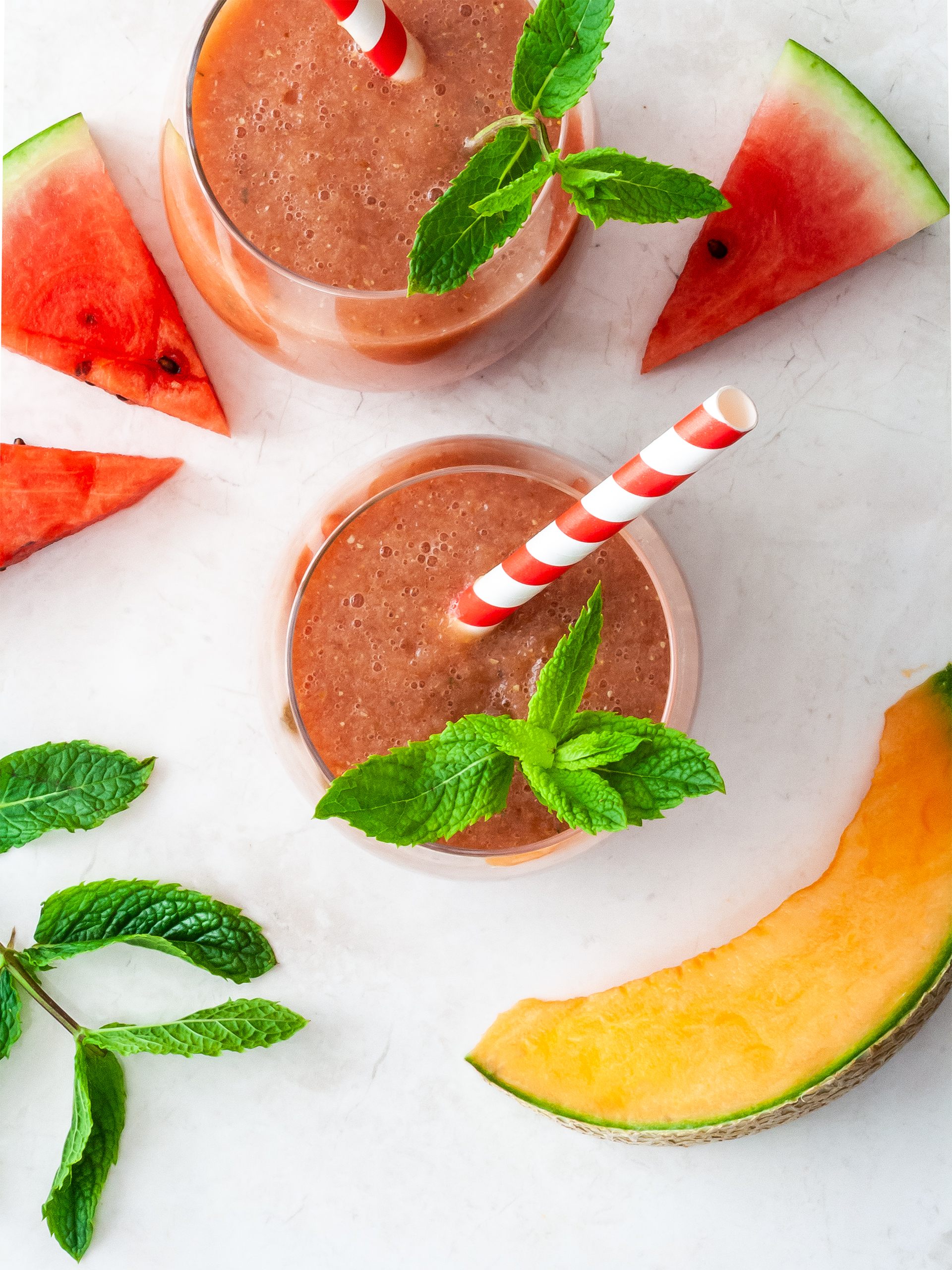
Thanks to low-carb fruits melon and watermelon and the lipid-lowering properties of bee pollen and flaxseeds, this refreshing summer smoothie recipe is a great ally to any weight loss plan.
Overnight Acai Berry and Oat Yogurt Bowl
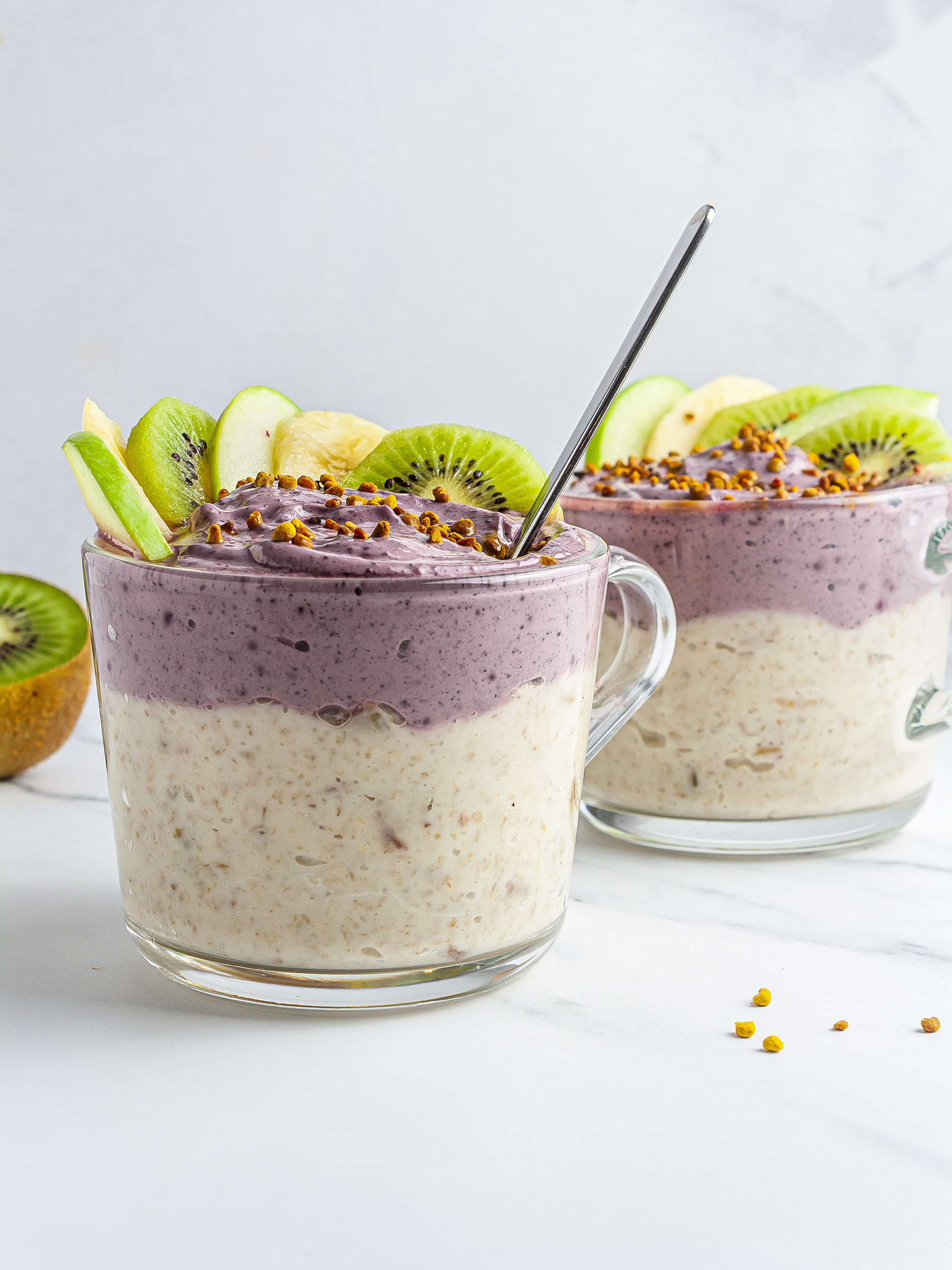
When you don’t have time to prepare your morning meal, this overnight oat yogurt and acai berry breakfast bowl comes to the rescue.
It's a healthy meal with a balanced combination of carbs, fats, and proteins to support you throughout the day, with added bee pollen for extra nutrition.
Buckwheat and Oat Blueberry Pancakes
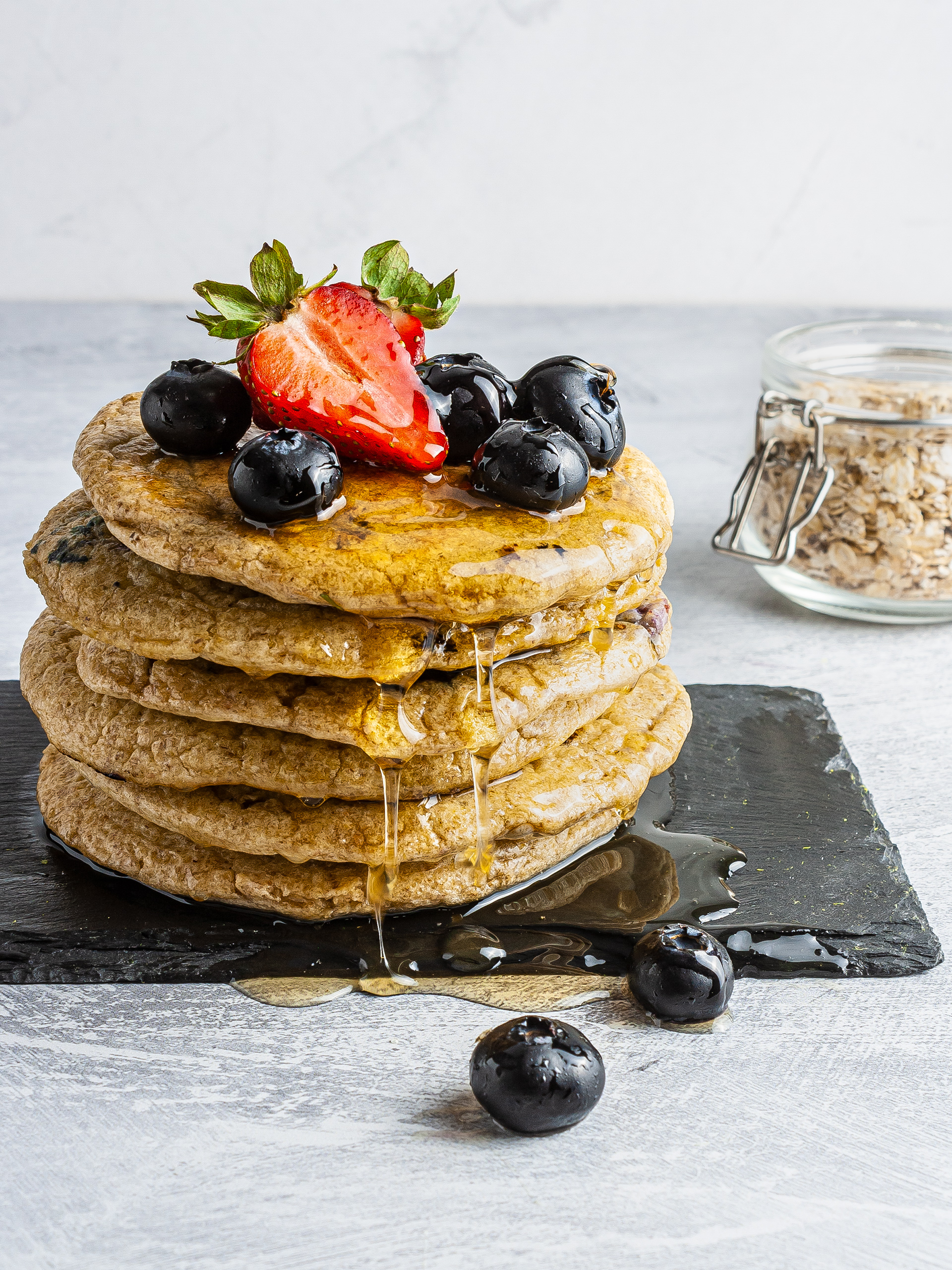
These delicious gluten-free pancakes make the ultimate brunch recipe that is also good for your waistline.
Drizzle these golden pancakes with maple syrup and top with berries and bee pollen for a boost flavour and health-promoting antioxidants.
To Sum Up
Bee pollen is a complete dietary supplement that can make a great addition to your pantry.
Not only it provides essential nutrients but it can also improve metabolism and reduce inflammation in your body.
It's a year-round solution to boost your immune-system and overall vitality and an easy ingredient to add to your recipes, like smoothies, sweet treats, and salads.
Thanks for reading! If you love articles like this and healthy recipes, you can have them sent right into your inbox every week, just subscribe to our newsletter and claim your free ebook!
REFERENCES
Organic Bee Pollen: Botanical Origin, Nutritional Value, Bioactive Compounds, Antioxidant Activity and Microbiological Quality, Xesús Feás et al., Molecules 2012, 17, 8359-8377;
Bee Pollen: Chemical Composition and Therapeutic Application, Katarzyna Komosinska-Vassev et al., Evidence-Based Complementary and Alternative Medicine Volume 2015, Article ID 297425, 6 pages

